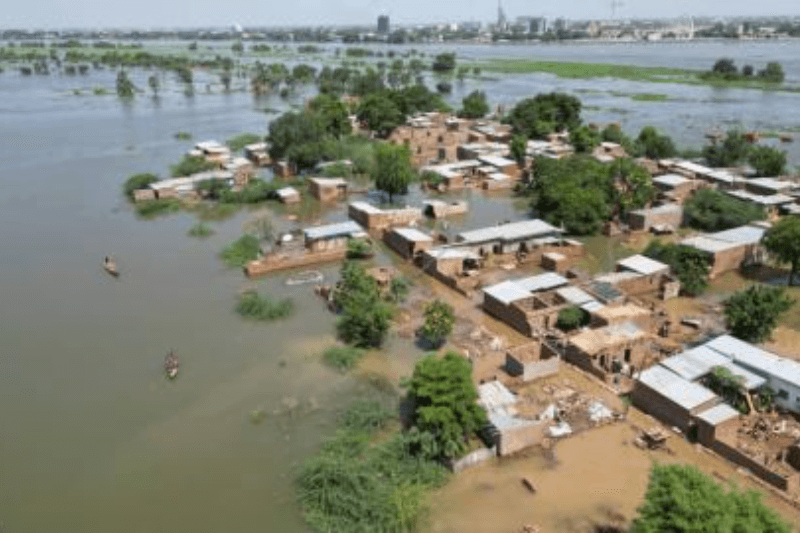Heavy rains of late have caused chaos in the Mayo Danay region of northern Cameroon, especially its worst-hit city, Yagoua. Torrential rain has caused the death of at least ten people, submerging neighborhoods and much loss in livestock and educational infrastructure.
The floods have submerged 185 primary schools and 13 high schools, displaced over 200000 residents, and led to the disappearance of more than 1,100 heads of livestock. Many of the households reported they cannot meet the basics in their lives such as food and shelter. “We are in total distress,” said Litassou Daniel, a victim of flood.
“The rain took us by surprise in the middle of the night. Our kitchen utensils are gone, some pots disappeared, and our sheep, chickens, and goats are nowhere to be found. Now I stand in the water and am trying somehow to cope, but we even cannot light a fire.”
More than 8,000 houses have been razed, and their occupants moved into temporary camps outside of the city. The victims of the flood disaster said once more that these temporary tents are little consolation, and they need more assistance. Displaced people like Boussate Lydie complain that since the phenomenon is recurrent and the support is not enough:
“Every year, we face this same threat from floods. Our situation never improves. We are given tents to stay in, but they do not last-once the sun sets in, they are ruined. We have lost goats, sheep, and many homes have collapsed. We are pleading with the authorities to help us.”
These floods have also swept away an important bridge that connected Maga with Yagoua, separating several neighborhoods of the city. For this reason, the Cameroonian Minister of Urban Development, Célestine Ketcha Courtes, visited the site to outline measures that were taken immediately to reconnect the area. The government has pledged an amount of 350 million CFA francs in form of aid, but a lot of locals believe it is minimal, considering the extent of this crisis.
Keep Reading
“We saw that the bridge is completely destroyed,” the minister said. “We committed ourselves to mobilizing companies this coming Monday to put in place a temporary solution that will reconnect Maga with the rest of the department and allow easier movements for the population.
Canoes constitute the current means of transportation, and the region faces a threat to become a no-man’s land, as there are growing fears that if urgent intervention is not carried out on the infrastructures and equally provide enough aid to the inhabitants of those communities, everything will get out of hand.

